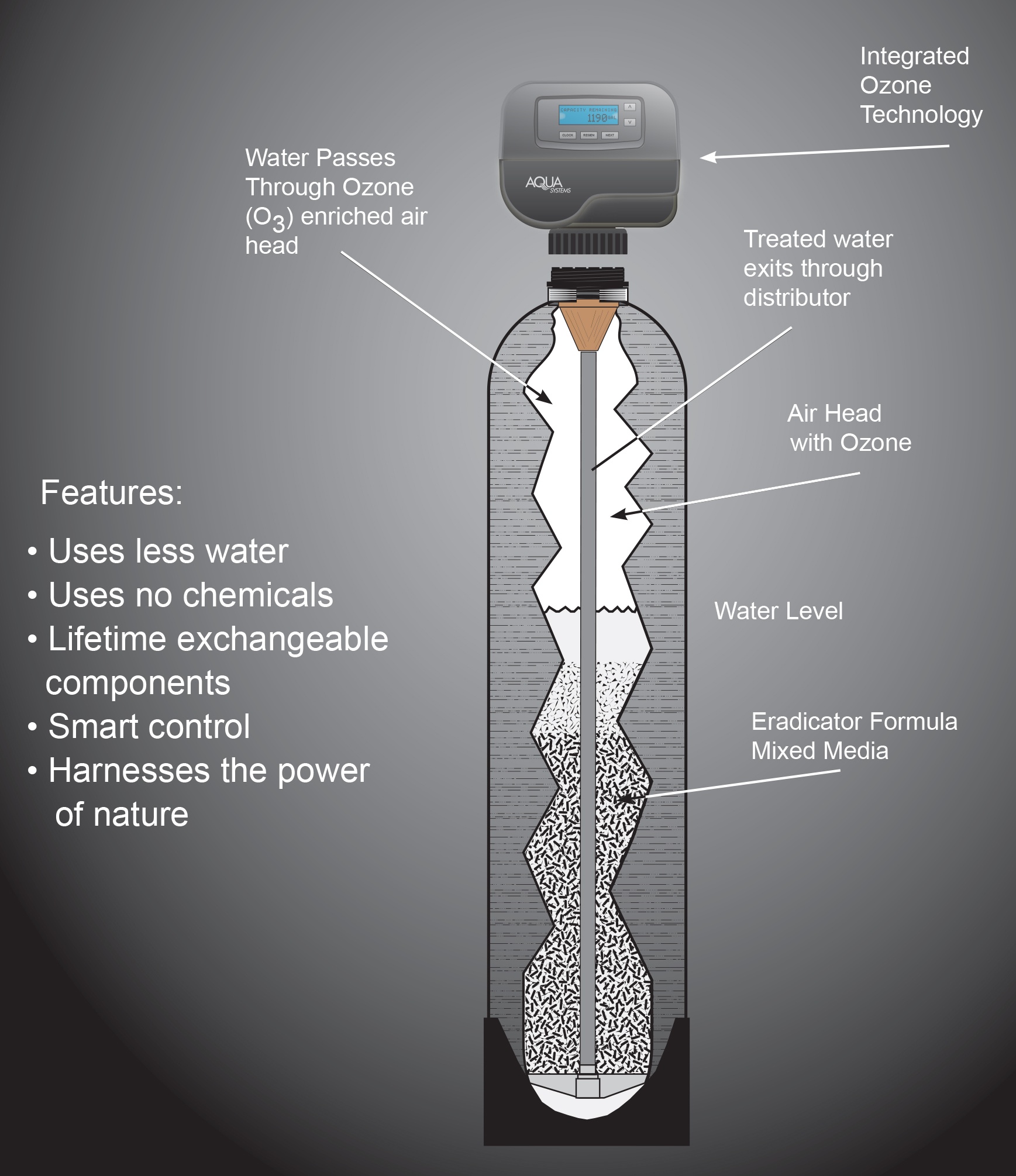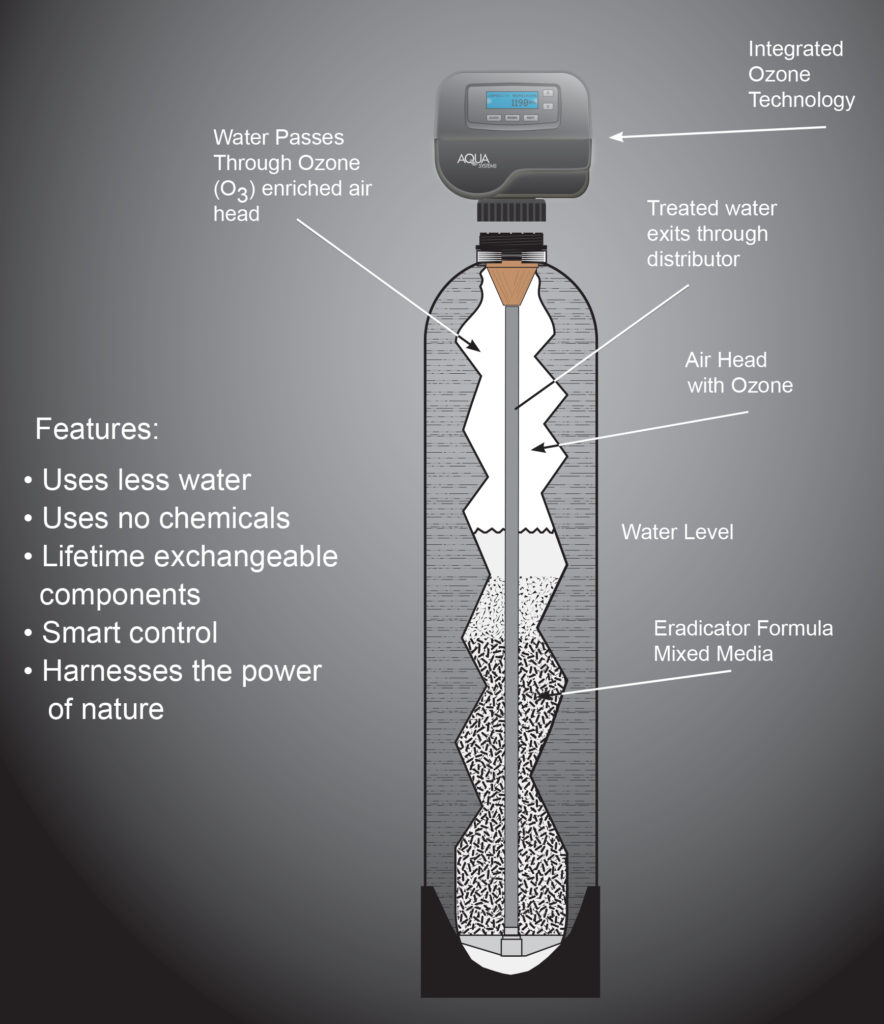Hydrogen Sulfide & Rotten Egg Smell in Water
Rotten egg smell is a common water quality issue in the New England region usually caused by Hydrogen sulfide (H2S). Hydrogen sulfide is a colorless gas that can exist naturally in groundwater. (for removal techniques, see lower section on this page). Sulfur-reducing bacteria present in groundwater use sulfur as an energy source to chemically change sulfates to hydrogen sulfide which releases a rotten egg smell in water. The bacteria use sulfur from decaying plants and other organic matter in oxygen-deficient environments. They can occur in deep or shallow wells and reside in plumbing systems. Hydrogen sulfide can reveal itself in other ways too. Hot water heaters that have a magnesium rod used for corrosion control can chemically reduce sulfates to Hydrogen sulfide.
Hydrogen sulfide also can enter surface water through springs as well. It is most common in shale and sandstone. The occurrence of Hydrogen sulfide gas has been associated with groundwater with low pH and/or groundwater with high levels of iron and/or manganese (typical water quality issues in New England). Hydrogen sulfide has a pungent smell at low concentrations and most people can detect concentrations above 0.03 ppm. There is no Maximum Contaminant Level established by the United States EPA.
Does Hydrogen Sulfide pose a health risk, or just an aesthetic issue?
Usually it is not a health risk at concentrations present in household water. However, Hydrogen sulfide gas is flammable and poisonous at high concentrations. Buildup of Hydrogen sulfide concentrations in confined areas has been known to cause adverse health effects. For more on this, see the link at: OSHA H2S Link.
Bacteria in groundwater are responsible for most of the sulfide smells detected while sampling water wells. These are not often associated with high enough concentrations to be a health issue. In rare cases, sulfide presence may be due to sewage pollution. If you experience a rotten egg odor suddenly, consult with a water filtration system professional.
Other Effects of Hydrogen Sulfide
Other than releasing a rotten egg smell in water, Hydrogen sulfide may be corrosive and can leach metals from plumbing systems into the water. The result of this corrosion of metals by Hydrogen sulfide can be a black precipitate that can stain laundry and bathroom fixtures, darken silverware, and discolor copper and brass utensils. For more on this, see the link at: OSHA H2S Link.
HYDRODEN SULFIDE Removal TechnIQUES
While there are several technologies available to remove the rotten egg smell in your water, it cannot be viewed in a vacuum. The pH level, iron & manganese levels, as well as other contaminants present in the water must be evaluated for an effective, comprehensive solution to this issue. Some of the technologies and systems that may be used include:
- Ozone is a powerful oxidant and very effective at precipitating sulfur out of water. It’s effective for concentrations up to 10 ppm.
- Oxidizing filters will work for concentrations up to 6 ppm. The filter contains sand with a manganese dioxide coating that changes hydrogen sulfide gas to tiny particles of sulfur that are trapped inside the filter.
- Activated carbon filters can be effective when hydrogen sulfide is present in low levels (up to about 0.3 ppm). The hydrogen sulfide is absorbed onto the surface of the carbon particles. Filters require periodic replacement and can harbor sulfate-reducing bacteria
- Shock chlorination of your well may reduce the hydrogen sulfide-producing bacteria. It’s most effective in water with a pH between 5 and 7 and ineffective in alkaline (higher pH) water. An activated carbon filter may be necessary to remove residual chlorine or small amounts of remaining hydrogen sulfide.
- Water heater modification is necessary when hydrogen sulfide is causing an odor within the water heating system. Replacing the magnesium corrosion control rod with one made of aluminum or other metals usually improves the situation, however, you should check the manufacturer’s warranty on the water heater to make sure you aren’t voiding the warranty.



